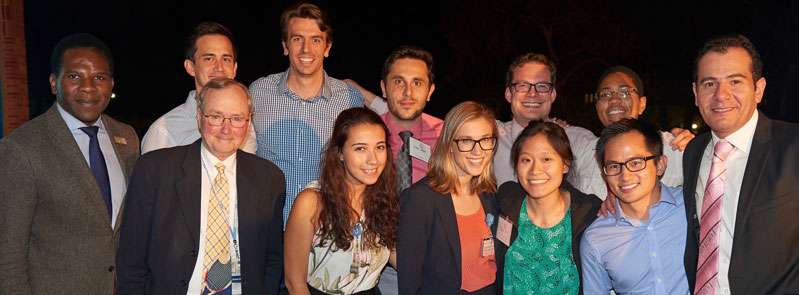
Our current STAR-PSTP community hosts a vibrant mix of trainees at all levels, and a continuum of graduates who are currently STAR fellows. Our graduates continue subspecialty training in all medicine subspecialties, and continue in a successful and validated pipeline known to produce successful physician investigators in the areas of basic, translational, and clinical/health services research.
Resident Profiles
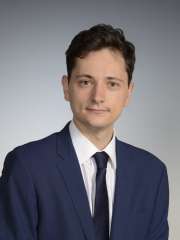
Philip Nussenzweig, MD, PhD
Dr. Philip M Nussenzweig completed his MD and PhD from the Weill Cornell/Rockefeller/Sloan Kettering Tri-Institutional MD-PhD Program. His thesis work with Luciano Marraffini focused on how CRISPR-Cas9 systems naturally function in bacteria to defend against infection by viruses known as bacteriophages (phages). His work identified a novel phase of the CRISPR response known as Cas9 priming that enhances anti-viral immunity.

Jessica Hong, MD
Dr. Jessica Hong completed her MD at the University of California San Francisco where she studied genetic factors implicated in congenital heart disease with Dr. Deepak Srivastava at the Gladstone Institutes. Concurrently, she spent four years with a machine learning team at Google developing methods for high-throughput protein sequencing.
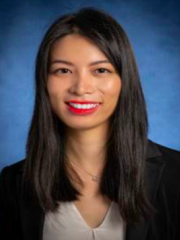
Jiajia Zhang, MD, MPH
Dr. Jiajia Zhang received her MD from Peking Union Medical University and MPH from Johns Hopkins Bloomberg School of Public Health. Under the mentorship of Drs. Drew Pardoll and Kellie Smith at Hopkins, her research focuses on immunogenomic determinants of T cells in immunotherapy responsiveness. Her work provides important insights for overcoming resistance to PD-1 blockade and resulted in a co-inventor patent on novel targets for combination neoadjuvant immunotherapy.
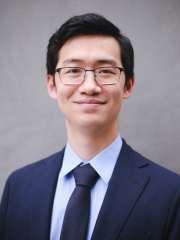
Kevin Qian, MD, PhD
Dr. Kevin Qian received his BS from Yale College and completed his MD and PhD at UCLA, where he studied lipid metabolism in the lab of Dr. Peter Tontonoz. During his PhD, he discovered a previously unknown gene that controls how lipid stores are organized in different types of fat cells. This work improved our fundamental understanding of adipocyte biology and implicated a new factor in the pathogenesis of metabolic syndrome.
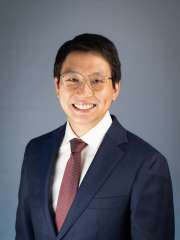
Po wei "Billy" Kang, MD, PhD
Dr. Po wei “Billy” Kang received his BS from Johns Hopkins University and completed his MD and PhD at Washington University in St. Louis. His research focused on understanding how the cardiac potassium (KCNQ1) and sodium (NaV1.5) channels function to facilitate synchronous contraction of the heart. His work uncovered novel regulatory mechanisms of cardiac ion channels, provided insights into arrhythmogenesis, and revealed new structural targets for anti-arrhythmic therapies.
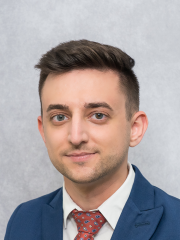
Lloyd D. Harvey, MD, PhD
Dr. Lloyd Harvey completed his MD, PhD at the University of Pittsburgh-Carnegie Mellon University Medical Scientist Training Program under Dr. Stephen Y. Chan. His work leveraged large, multidimensional genomic and metabolomic datasets to define a role for lysosomal control of sterol metabolism at the endothelium in pulmonary arterial hypertension. His work led to the computational definition and synthesis of a novel agent targeting this pathway to reverse disease in vitro and in vivo.
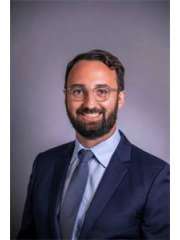
Bradley Reinfeld, MD, PhD
Dr. Bradley Reinfeld completed his MD and PhD at Vanderbilt, under W. Kimryn Rathmell and Jeffrey Rathmell. During his PhD, he discovered that cell type intrinsic transcriptional and signaling programs dictate nutrient preferences in the tumor microenvironment. This work added increased our understanding of the metabolic complexity within cancer and provides new fundamental insight that can aid new imaging techniques for detection and therapeutic monitoring of malignancy.